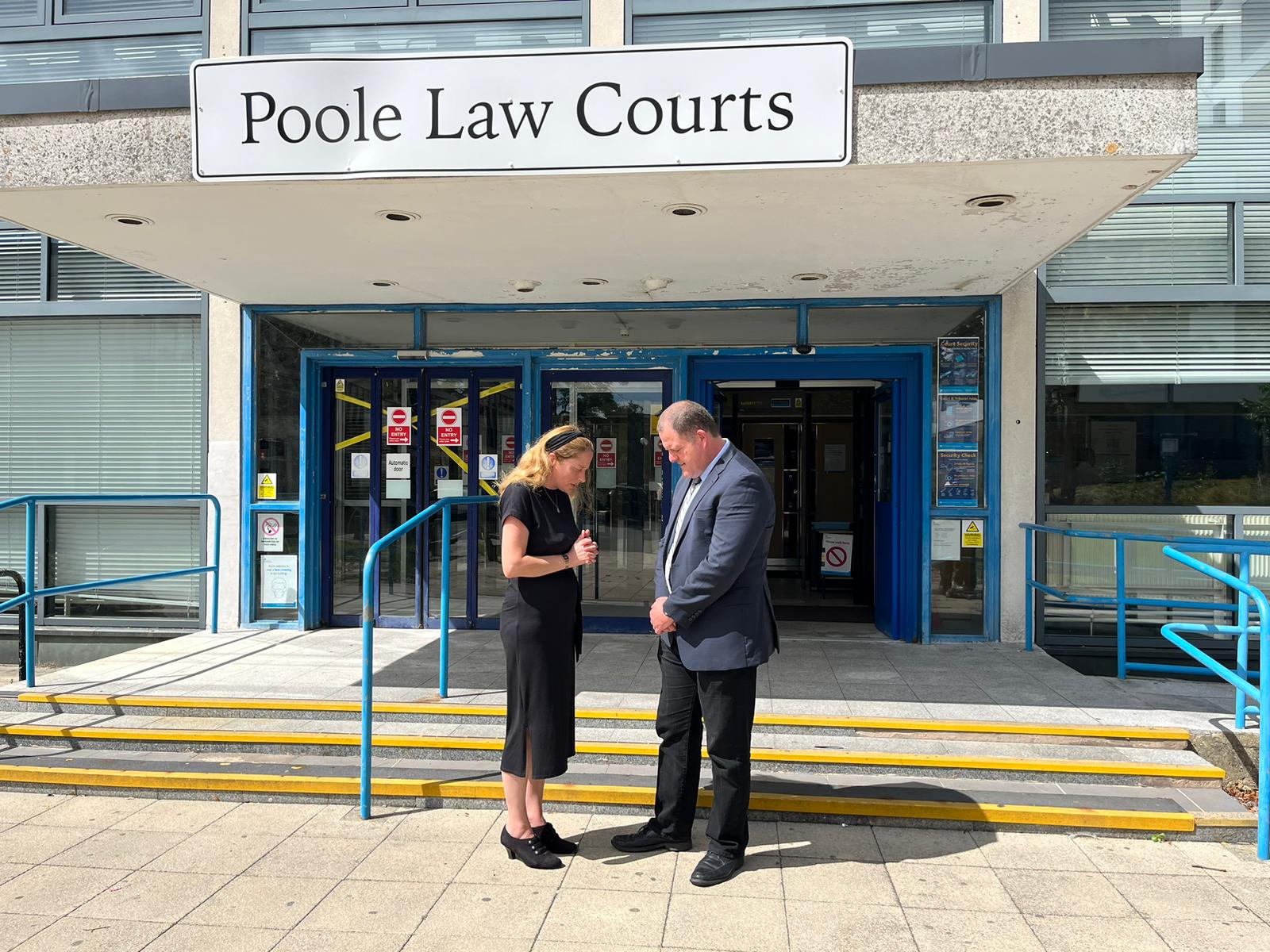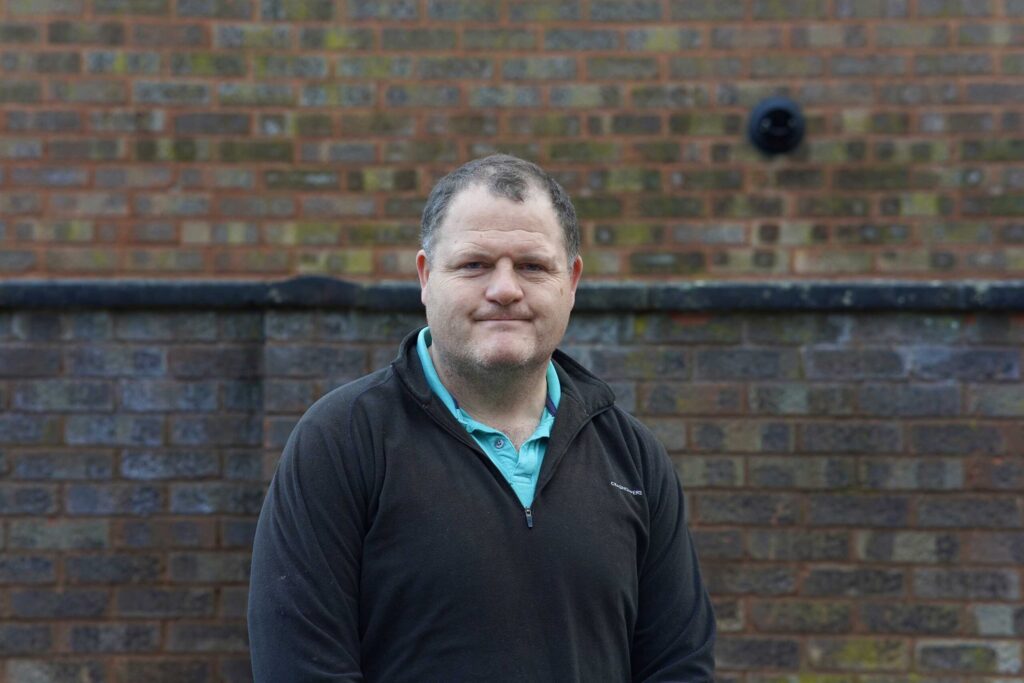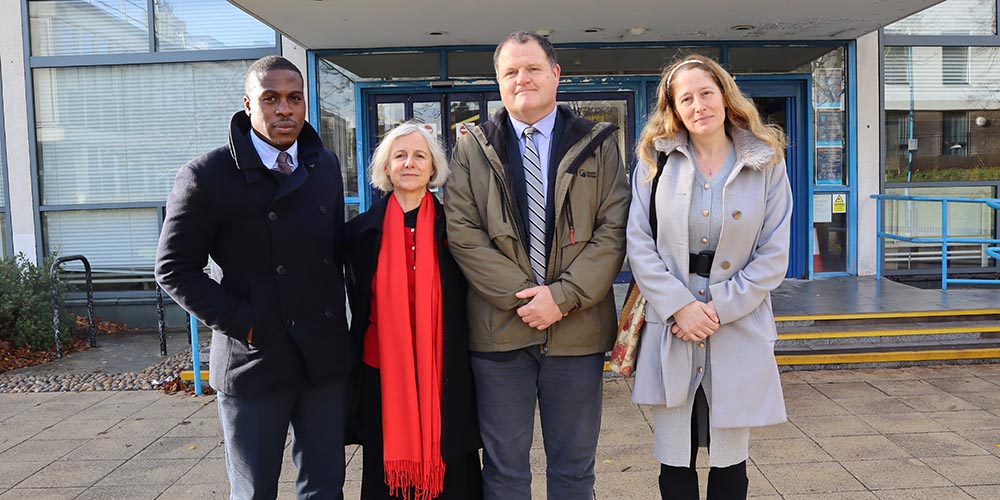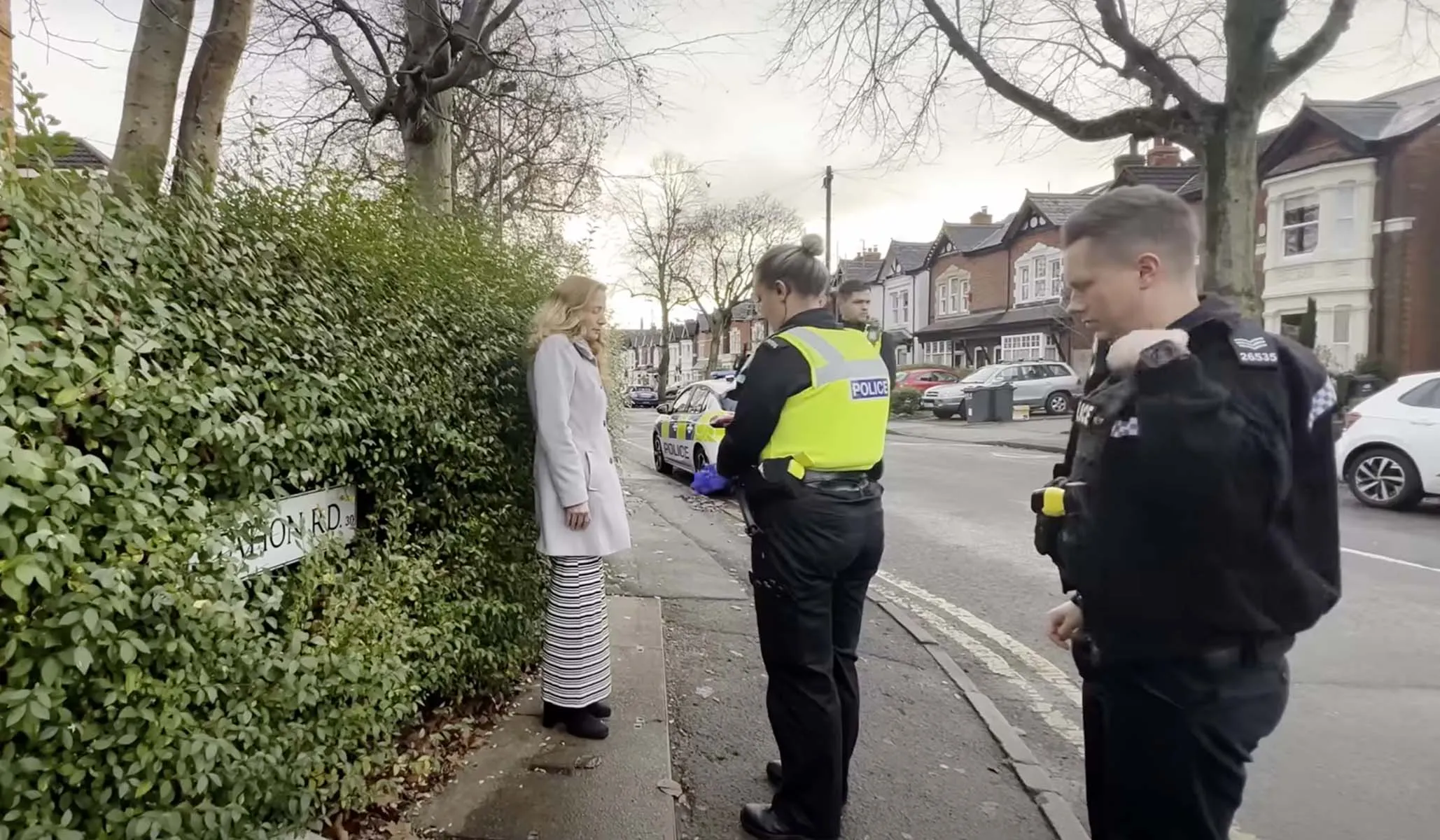- Livia Tossici-Bolt held a sign reading “Here to talk, if you want” near an abortion facility in Bournemouth
- Retired medical scientist to face trial 5th -6th MARCH; ADF UK supports legal defence
- U.S. Vice-President J.D. Vance raises repeated concerns about the UK’s “buffer zone” laws – “these ideas are going to destroy Western civilisation”
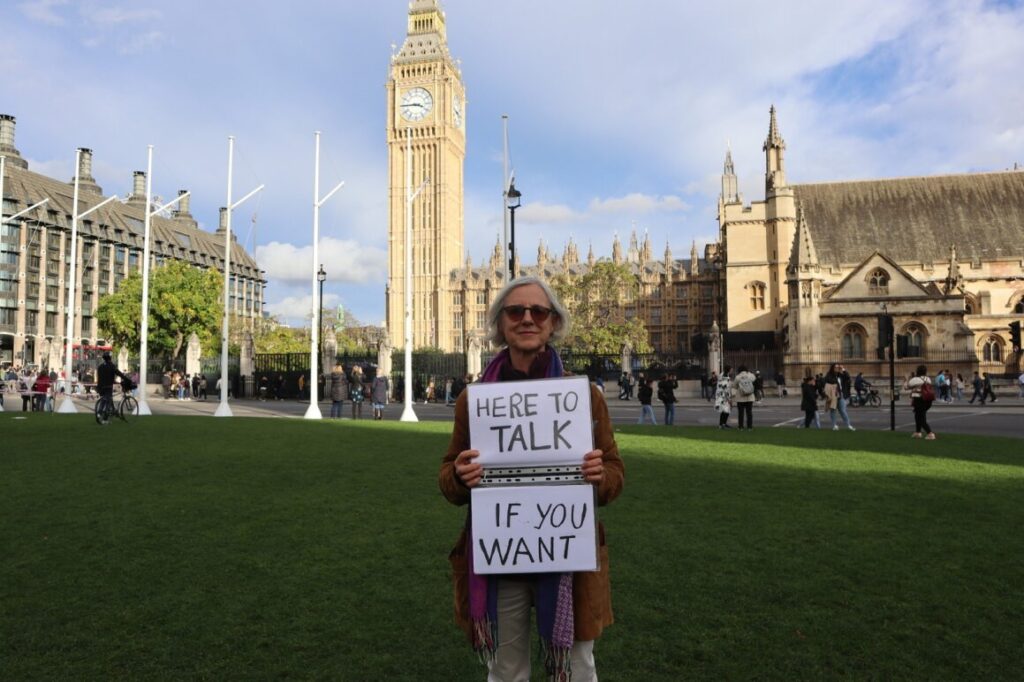
BOURNEMOUTH (5 March 2025) – A retired medical scientist from Bournemouth will face trial on 5th-6th March following charges relating to her charitable work supporting women in crisis pregnancies.
Livia Tossici-Bolt, 63, held a sign reading “here to talk, if you want to” near an abortion facility in Bournemouth. Several individuals approached her to take up her offer of a conversation about matters going on in their lives.
“There’s nothing wrong with two adults engaging in a consensual conversation on the street. I shouldn’t be treated like a criminal just for this.”
- Livia Tossici-Bolt
Local authorities confronted Tossici-Bolt, alleging that she had breached a local abortion “buffer zone”, which bans “expression of approval or disapproval of abortion”. They issued a Fixed Penalty Notice, which Tossici-Bolt refused to pay, on the grounds that she did not breach the terms of the PSPO, and had the right, protected under Article 10 of the Human Rights Act, to offer consensual conversations.
Tossici-Bolt will face trial at Bournemouth Magistrates’ Court on 5th-6th March 2025. ADF UK are supporting her legal defence.
“There’s nothing wrong with two adults engaging in a consensual conversation on the street. I shouldn’t be treated like a criminal just for this,” said Livia Tossici-Bolt, whose legal defence is being supported by ADF UK.
International concerns over Britain's censorship
Speaking to Sean Hannity on Fox, U.S. Vice-President J.D. Vance yesterday listed the UK’s notorious “buffer zone” rules as an example of an idea which could “destroy Western civilisation.“
Referencing egregious examples of authoritarian censorship across Europe last month at the Munich security conference, Vance highlighted the “most concerning” case of Adam Smith-Connor – the army veteran and father of two in Britain who was convicted in November 2024 for praying silently, for a few minutes, on a public space across the road from the Bournemouth abortion facility, where a “buffer zone” was enforced.
Reflecting on his concerns for Europe, the Vice-President said:
“…perhaps most concerning, I look to our very dear friends, the United Kingdom, where the backslide away from conscience rights has placed the basic liberties of religious Britons, in particular in the crosshairs.
“A little over two years ago, the British government charged Adam Smith Connor, a 51 year old physiotherapist and an Army veteran, with the heinous crime of standing 50m from an abortion clinic and silently praying for three minutes, not obstructing anyone, not interacting with anyone, just silently praying on his own.”
Speaking on GB News Podcast “Choppers Politics” this month, Michael Gove said: “It is wrong to say that someone cannot pray – silently – because you have a particular view on abortion…For me, free speech is as close to a fundamental principle as any. And so is freedom of worship.”
Jeremiah Igunnubole, Legal Counsel for ADF International, supporting Livia’s defence, said:
“Under far-reaching and vaguely-written rules, we have seen volunteers like Livia criminalised simply for offering to talk; and others dragged through courts for praying, even silently, in their minds.
The principle of freedom of thought and speech must be defended both within and outside “buffer zones”. It’s unthinkable that as real crime is mounting, policing time and resources are being expended on peaceful individuals like Livia who simply, and peacefully, offer to engage in consensual conversation. What kind of society does that?” commented Jeremiah Igunnubole, legal counsel for ADF UK, who are supporting Tossici-Bolt’s legal defence.
Images for free use in print or online in relation to this story only.
PICTURED: Livia Tossici-Bolt; ADF UK Legal Counsel Jeremiah Igunnubole





